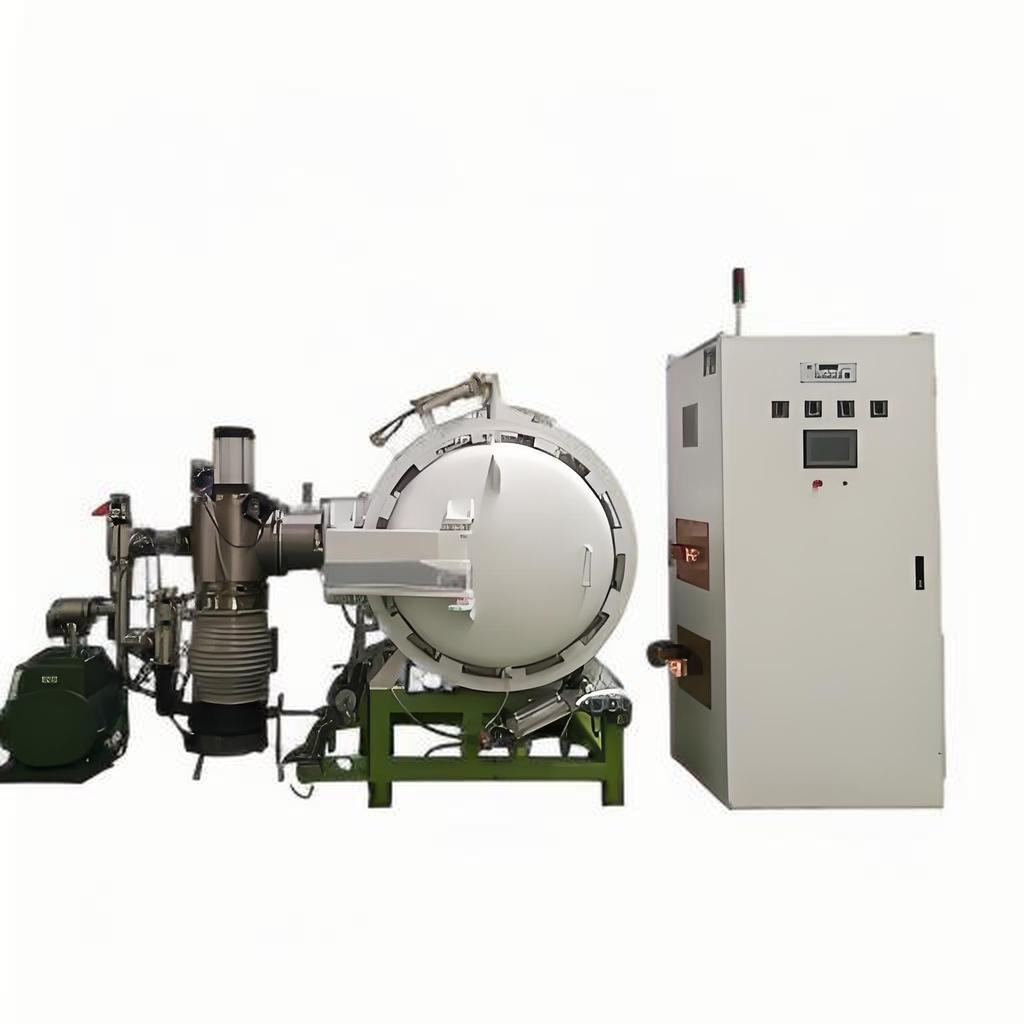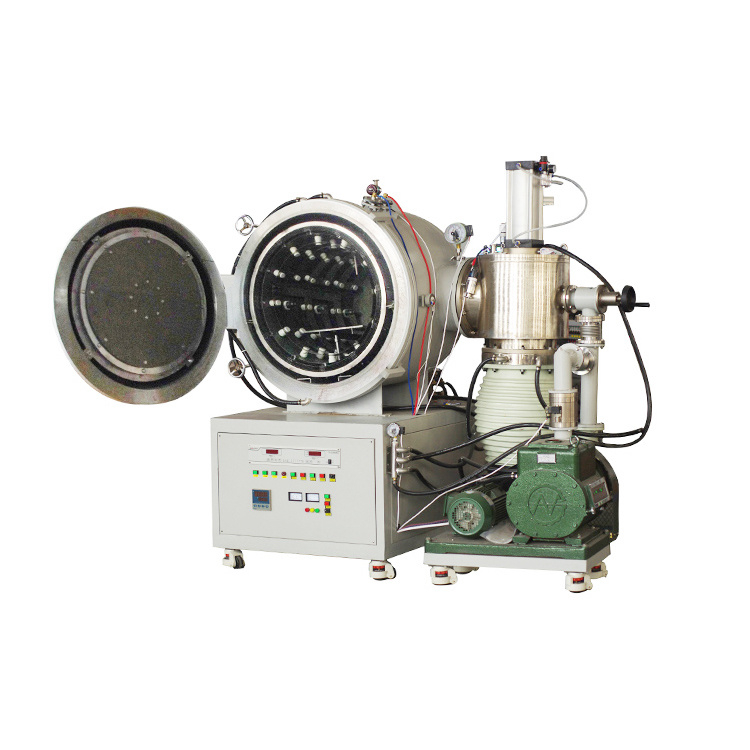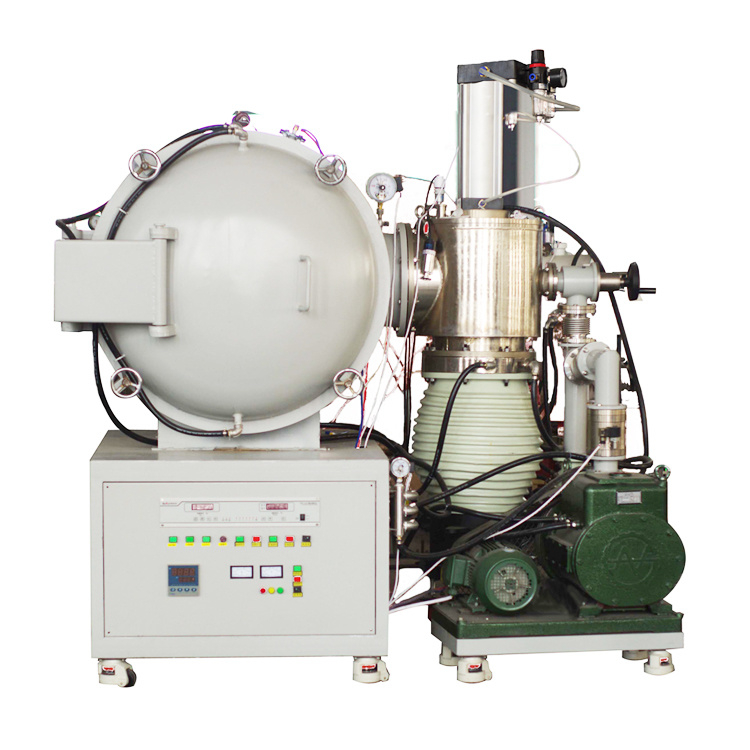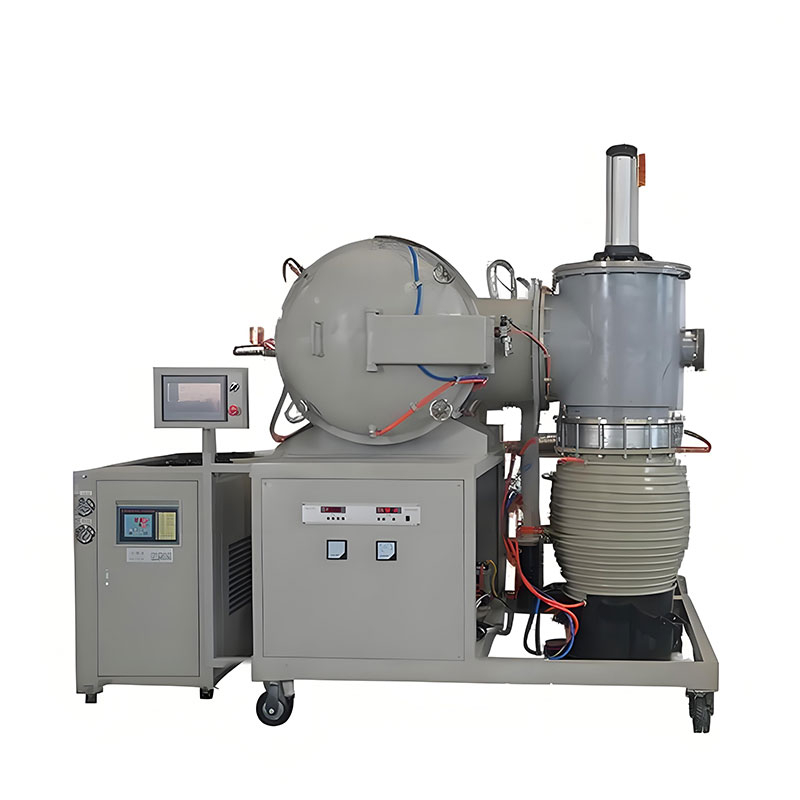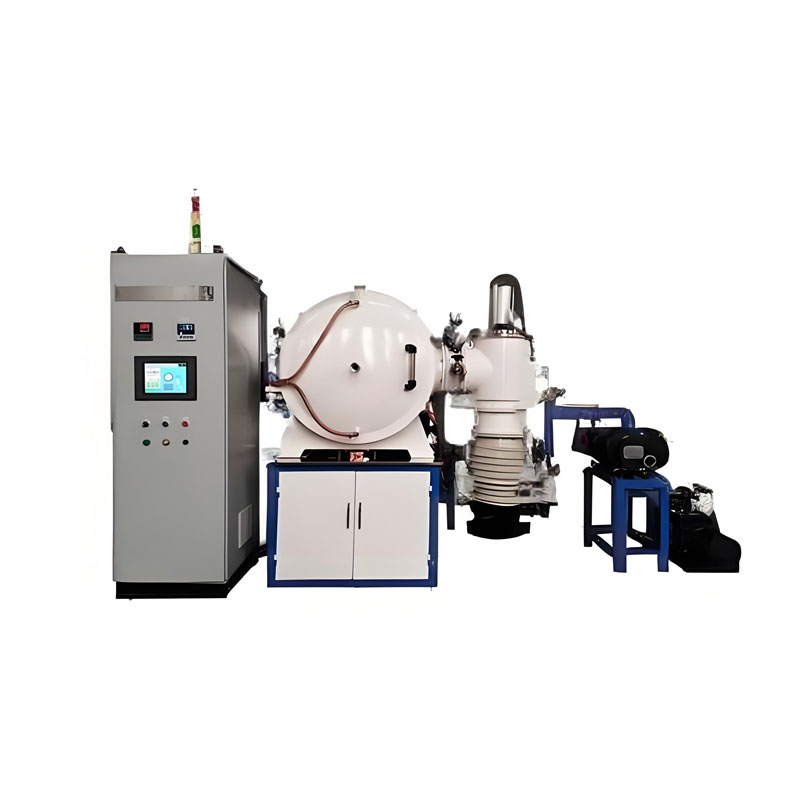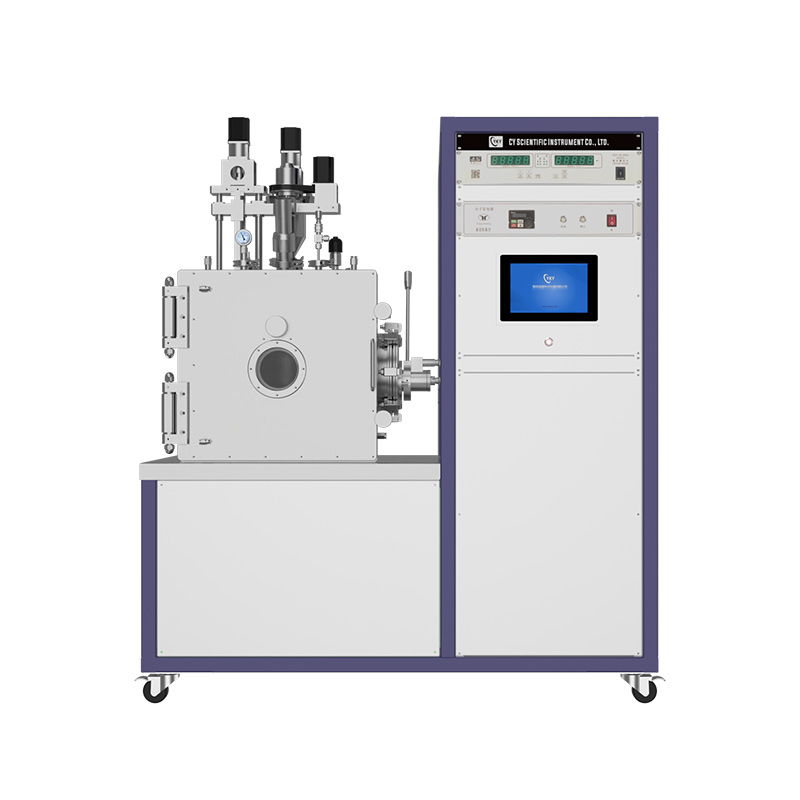The Molybdenum wire vacuum sintering furnace is a device used for heating and processing materials in a low-pressure or vacuum environment. It effectively reduces oxidation and contamination, making it suitable for high-temperature processes such as melting, sintering, and annealing. Molybdenum wire vacuum sintering furnaces typically feature high-precision temperature control and atmosphere regulation, widely used in industries like metals, ceramics, semiconductors, and glass.
Product Description:
The Molybdenum wire vacuum sintering furnace is a specialized device used for heating and processing materials in a vacuum environment, particularly suitable for high-temperature treatment of molybdenum and its alloys. The furnace utilizes resistance heating principles, employing molybdenum wire as the heating element to achieve efficient and uniform heating.
Product Features:
High Temperature Capability: Can reach temperatures exceeding 2500°C, suitable for sintering and melting molybdenum and its alloys.
Vacuum Operation: Operates in a vacuum or inert gas atmosphere, reducing oxidation and contamination, ensuring high purity of materials.
High Efficiency: Molybdenum wire heating offers good thermal conductivity, enabling rapid heating and cooling, improving energy efficiency.
Precise Control: Temperature and heating processes can be precisely controlled to meet the processing needs of different materials.
Versatility: Suitable not only for molybdenum but also for other high-melting-point metals and alloys.
Purchase Information:
If you are interested in our Molybdenum wire vacuum sintering furnace, please contact us for more information and pricing.
Phone: +86 18516380382
Email: Jimmy@cysitech.com
Contact Person: Jimmy Hao
WeChat: +86 18516380382
Technical Parameters:
Product Name | Molybdenum wire vacuum sintering furnace |
Model | CY-VF-MH |
Capacity | Options from 500g to 5kg |
Furnace Structure | Shell Structure: Double-layer water-cooled shell, inner layer polished stainless steel, outer layer high-strength carbon steel; furnace door sealed with a beveled flange and silicone rubber ring for stable and reliable processes; shell surface treated with electrostatic spraying. Inner Liner Material: New type of high-temperature resistant stainless steel, low power consumption, energy-efficient. Chamber Material: Molybdenum plate + 304 stainless steel plate |
Heating Element | High-temperature molybdenum ribbon |
Working Temperature | Max. 1400°C; continuous working temperature ≤ 1300°C |
Heating Rate | ≤20°C/min, recommended at 10°C/min |
Precision | ±1℃ |
Thermocouple | Type S |
Temperature Uniformity | ±5℃ |
Control Method | Screen control (stores 16 temperature curves), 16-segment programmable controller, PID automatic controller, thermocouple disconnection protection, and over-temperature automatic protection alarm |
Atmospheric Control | Fine-tuning valve for gas intake, capable of introducing inert gases like Ar or N2 according to process requirements |
Vacuum System | Low vacuum: Dual-stage rotary vane vacuum pump, 3Pa High vacuum: Mechanical pump + diffusion pump/molecular pump, -3Pa |
Cooling System | Water Chiller |
Power Supply Voltage | Single-phase 220V, 50/60Hz; three-phase 380V, 50/60Hz |
Main Components:
Component Name | Description |
Main Unit | Set process parameters, where physical changes of the sample occur |
Vacuum System | Chamber obtains vacuum |
Gas Control System | For filling with inert gases |
Water Chiller | For cooling the chamber |
Accessories | Gloves, hex keys, heating rods, pliers |
User Manual | Standard configuration |
Application Fields:
Aerospace: Used for processing high-temperature alloy materials to meet high-performance requirements.
Electronics Industry: Ensures material quality and performance in the production of semiconductors and optoelectronic materials.
Metal Smelting: Used for melting and processing molybdenum and other high-melting-point metals.
Powder Metallurgy: Suitable for sintering molybdenum powders, producing high-performance composite materials.
High-Temperature Materials Research: Employed in the development of new high-temperature materials and technologies.
Application Case: "Purification of Molybdenum Metal Using Molybdenum wire vacuum sintering furnace"
Process Steps:
1. Raw Material Preparation:
Prepare high-purity molybdenum powder or molybdenum alloy, ensuring the material is dry and free of impurities.
2. Loading the Furnace:
Place the molybdenum powder into a graphite crucible, ensuring uniform distribution.
3. Vacuum Pumping:
Start the vacuum system to remove air from the furnace, achieving a vacuum below 10⁻³ mbar.
4. Atmospheric Control:
Introduce inert gas (e.g., argon) to prevent oxidation of molybdenum at high temperatures.
5. Heating:
Activate the molybdenum wire heating element and slowly raise the temperature until reaching the melting point (approximately 2620°C).
6. Maintaining High Temperature:
Hold at the melting temperature for a certain period to ensure complete melting of molybdenum metal and separation of impurities.
7. Cooling:
Turn off the heating system and allow the molybdenum metal to cool slowly to room temperature, avoiding cracking due to rapid cooling.
8. Product Extraction:
Carefully remove the molten molybdenum metal after cooling to a safe temperature in the furnace.
9.Post-Processing:
Perform mechanical processing or surface treatment on the purified molybdenum metal to meet specific application requirements.
10. Precautions:
Control heating and cooling rates to reduce thermal stress.
Ensure the stability of vacuum and atmosphere to prevent oxidation or contamination.
Regularly check equipment to ensure normal operation of heating elements and vacuum systems.
Common Issues During the Use of Molybdenum wire vacuum sintering furnace
Oxidation or Contamination:
Materials may still be affected by trace oxygen, leading to oxidation even in a vacuum state.
Temperature Non-Uniformity:
Uneven temperature distribution inside the furnace may cause uneven sintering or damage to materials.
Vacuum Leaks:
Vacuum systems may develop leaks, affecting atmospheric stability and processing effectiveness.
Cracking of Samples:
Rapid heating or cooling may lead to thermal shock and cracking.
Improper Atmospheric Control:
Insufficient concentration of inert gas in the atmosphere may impact sintering quality.
Precautions During the Use of Molybdenum wire vacuum sintering furnace
Atmosphere Monitoring:
Regularly check the atmosphere and vacuum levels in the furnace to ensure stability.
Heating and Cooling Rates:
Control the rates of heating and cooling, generally recommended to change slowly to reduce thermal stress.
Material Selection:
Ensure that the materials used are suitable for high-temperature and vacuum environments to avoid incompatible chemical reactions.
Regular Maintenance:
Periodically inspect and maintain the furnace body, vacuum system, and heating elements to ensure normal operation.
Safety Protection:
Wear appropriate personal protective equipment during operation to ensure safety.
By focusing on these common issues and precautions, the efficiency of the Molybdenum wire vacuum sintering furnace and the quality of material processing can be improved.

